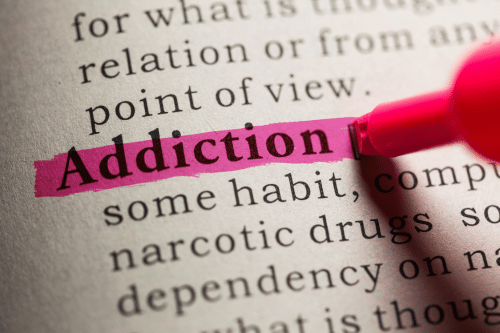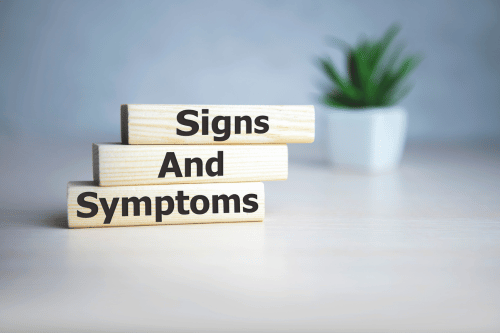

NyQuil, a popular over-the-counter medication, is commonly used to relieve cold and flu symptoms. However, misuse or prolonged use of cold medicines like NyQuil and Robitussin can lead to addiction. Individuals often begin using NyQuil to fall asleep or relieve cold and flu symptoms like a sore throat, runny nose, or cough. Over time, habitual misuse can result in chemical dependence and dangerous health consequences. In this article, we explore the risks, symptoms, and treatments for NyQuil addiction, providing valuable information for those affected and their families.
NyQuil addiction occurs when a person becomes reliant on NyQuil’s sedative effects beyond its intended medical use. While NyQuil effectively addresses common cold and flu symptoms, misuse develops when people take higher doses or extend usage to manage anxiety, insomnia, or stress. Individuals with a family history of substance abuse are more susceptible to developing a dependency on NyQuil due to its psychoactive properties, highlighting the genetic predisposition to addiction. Over time, the body develops chemical dependence, making it difficult to stop without professional help.
NyQuil addiction is a type of substance use disorder characterized by the compulsive use of NyQuil, an over-the-counter medication used to alleviate cold and flu symptoms. Despite its intended use as a temporary relief for cold and flu symptoms, NyQuil can be misused and lead to physical dependence and addiction. According to the National Poison Data System, there were 34,755 exposures to dextromethorphan, a key component in NyQuil, reported in 2006, highlighting the potential for abuse and addiction.

Several factors contribute to NyQuil misuse:
Self-medication for sleep problems or anxiety
Escalating from occasional use to frequent doses
Underestimating the addictive potential of over-the-counter medications like NyQuil, often referred to as ‘nyquil addictive’
Genetic predisposition to addictive behaviors
NyQuil contains powerful ingredients, such as cough suppressants and antihistamines, that can cause both physical health effects and mind-altering effects when abused.
NyQuil abuse occurs when an individual takes the medication in excess of the recommended dosage or for an extended period, leading to physical dependence and addiction. The active ingredients in NyQuil, including dextromethorphan, acetaminophen, and doxylamine, can produce a psychoactive effect, leading to feelings of euphoria and relaxation. However, this can also lead to negative consequences, including liver damage, respiratory depression, and cognitive impairment.
NyQuil contains a combination of active ingredients, including:
Dextromethorphan (DXM): a cough suppressant that can produce a psychoactive effect when taken in excess.
Acetaminophen: a pain reliever and fever reducer that can cause liver damage when taken in excess.
Doxylamine: an antihistamine that can cause drowsiness and sedation.
When taken as directed, NyQuil can provide temporary relief from cold and flu symptoms, including cough, sore throat, runny nose, and fever. However, when misused, NyQuil can lead to physical dependence and addiction.

Recognizing symptoms of NyQuil addiction is essential for early intervention. Individuals addicted to NyQuil may experience:
Mood swings and heightened anxiety
Persistent use despite adverse effects on physical health
Dependence on NyQuil to fall asleep regularly
Withdrawal issues, such as runny nose, headaches, and insomnia
Difficulty functioning without NyQuil, impacting personal and professional life
Physical symptoms of NyQuil addiction may include:
Increased tolerance: needing to take more NyQuil to achieve the same effects.
Withdrawal symptoms: experiencing symptoms such as nausea, sweating, and anxiety when NyQuil use is stopped or reduced.
Blurred vision: a common side effect of NyQuil use.
Liver damage: a potential consequence of long-term NyQuil use.
Behavioral symptoms of NyQuil addiction may include:
Compulsive use: feeling unable to control NyQuil use despite negative consequences.
Secrecy: hiding NyQuil use from friends and family.
Social withdrawal: avoiding social interactions due to NyQuil use.
Neglect of responsibilities: neglecting work, school, or other responsibilities due to NyQuil use.
Stopping NyQuil after prolonged use can trigger withdrawal symptoms. These symptoms occur as the body adjusts to the absence of substances it has become dependent on. Common NyQuil withdrawal symptoms include:
Nausea and abdominal pain
Flu-like symptoms such as sore throat and fatigue
Irritability, heightened anxiety, and restlessness
Disrupted sleep patterns, leading to insomnia
Physical health effects, including shaking and dizziness
The severity of withdrawal may depend on how long the individual has used NyQuil and at what doses.
Repeated misuse of NyQuil can lead to severe health risks. Many individuals are unaware that the active ingredients in NyQuil, such as acetaminophen, can cause severe liver damage when taken in excess. NyQuil abuse also increases the risk of:
Respiratory depression, which can result in slowed or shallow breathing
Cognitive impairments affecting behavioral health and judgment
Interactions with illegal drugs or alcohol, compounding the risks
Liver damage from long-term misuse, particularly in individuals with pre-existing liver conditions
Using NyQuil with other substances, such as cough medicines or sedatives, can further amplify these risks, leading to life-threatening complications.
Long-term use of NyQuil can lead to a range of physical and mental health risks, including:
Liver damage: acetaminophen in NyQuil can cause liver damage when taken in excess.
Respiratory depression: dextromethorphan in NyQuil can slow breathing rates, leading to respiratory depression.
Cognitive impairment: NyQuil use can impair cognitive function, including attention and memory.
Mental health problems: NyQuil use can contribute to mental health problems, including anxiety and depression.
It is essential to seek medical attention if you or someone you know is experiencing symptoms of NyQuil addiction or withdrawal. Cognitive behavioral therapy and other treatment options can help individuals overcome NyQuil addiction and achieve long-term recovery.
NyQuil addiction treatments include detox programs, inpatient and outpatient treatment, medications for mental health issues, cognitive-behavioral therapy, and support groups to aid recovery.
Treating NyQuil addiction requires a comprehensive approach addressing both physical and mental health needs. Recovery often involves the following steps:
A medical detox facility ensures a safe withdrawal process, managing symptoms like insomnia and anxiety. Detox is the first step in helping the body eliminate toxins while preventing dangerous complications.
CBT addresses underlying psychological factors contributing to addiction. It helps individuals develop healthy coping mechanisms and prevent relapse.
In some cases, medication-assisted treatment may be recommended to manage withdrawal symptoms and reduce cravings. MAT, combined with therapy, improves long-term recovery outcomes.
A focus on behavioral health through group therapy and counseling allows individuals to address any co-occurring mental health problems, such as anxiety or depression.
Preventing NyQuil addiction begins with responsible use and awareness. Here are steps to avoid misuse:
Treat symptoms of cold or flu only as recommended by a healthcare provider.
Avoid using NyQuil to fall asleep unless advised by a doctor.
Monitor usage and seek help if you notice signs of dependence.
Educate yourself on the effects of NyQuil and the risks of chemical dependence prolonged use.
Promote a healthy lifestyle that prioritizes wellness and natural remedies for sleep issues.
Encouraging alternative treatments and non-medicated approaches to insomnia can also reduce reliance on over-the-counter medications.
If you or a loved one is struggling with NyQuil addiction, it is essential to seek professional help. Recovery from substance use disorders like NyQuil addiction requires specialized care. Treatment at a medical detox facility or a mental health treatment center ensures the safest path to recovery. Professionals can assess the extent of dependence and create a tailored recovery plan, including therapy, MAT, and aftercare.
In addition to the health risks, legal and financial effects may arise from NyQuil misuse. Repeated drug abuse can lead to conflicts at work, strained relationships, and potential legal issues if addiction drives risky behaviors. Preventing these outcomes through early intervention is critical for maintaining stability and well-being.
While NyQuil is an effective solution for treating cold and flu symptoms, misuse can lead to serious health risks, including addiction. If you or someone you know is addicted to NyQuil, it is essential to act quickly. Sullivan Recovery offers a comprehensive range of treatment services, including medical detox, cognitive behavioral therapy, and mental health treatment, to help individuals overcome addiction and rebuild their lives.
Don’t let addiction take control. Contact Sullivan Recovery today to start your journey toward recovery and reclaim your health.

At Sullivan Recovery, as an in-network provider we work with most insurance plans, such as:
And More
If you or a loved one are struggling with mental health challenges or substance abuse, reach out to Sullivan Recovery today. Our team of compassionate professionals is here to support your journey towards lasting well-being. Give us a call at 949-836-7180.
No, it is not recommended to take NyQuil every night. Although it can provide relief from cold and flu symptoms, frequent use can lead to dependence and may indicate misuse. Prolonged nightly use increases the risk of developing NyQuil addiction and chemical dependence.
Using NyQuil for an extended period can result in tolerance, requiring higher doses to achieve the same effects. Long-term misuse can cause liver damage, sedative effects, and cognitive impairments. Individuals may also experience NyQuil withdrawal symptoms if they suddenly stop.
NyQuil should be used only for a short duration, typically no longer than 7 to 10 days, unless directed by a healthcare provider. Extended use beyond this period can increase the risk of developing symptoms of NyQuil addiction and negatively impact physical health.
NyQuil contains antihistamines and other sedative ingredients that induce drowsiness, making it easier for people to fall asleep. However, relying on NyQuil for sleep can lead to addictive behaviors and interfere with natural sleep patterns over time.